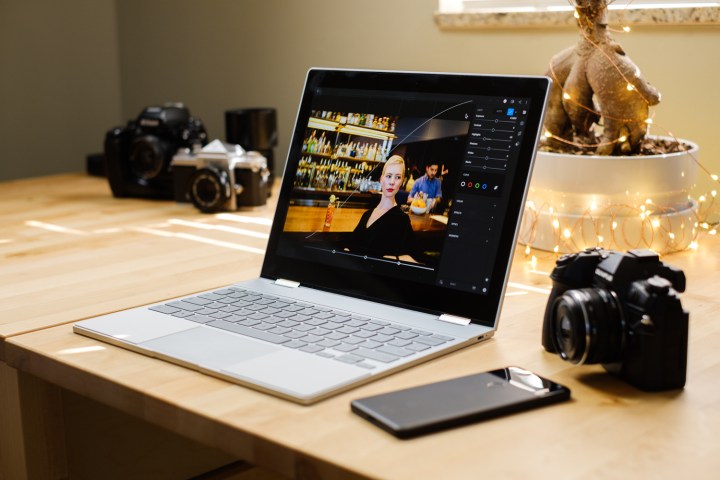
Would being able to boot Windows 10 on your Pixelbook excite you? That is one possibility as newly discovered commits reveal that Google may be working on allowing Chrome OS devices to load a secondary operating system. Given that Google’s Pixelbook already ships with high-end internals that are more than capable of loading Windows, this makes sense and gives the hardware more flexibility depending on the task that you need to accomplish.
“A few weeks back, a new Chrome OS build called eve-campfire popped up. It looks like this is a new branch of Pixelbook (eve) for making it easier to boot into different OSes,” a Reddit user posted about the code commits. “There are other commits regarding AltOS, including this telling one called “Message string for AltOS picker screen”. The options displayed are Chrome OS and AltOS.”
It’s still unclear if booting into Windows is exactly what Google had in mind for the AltOS picker. “It could be that AltOS allows you to dual-boot into another operating system, exists as its own operating system, or is somehow related to the possibility of natively booting Windows on the Pixelbook,” Android Authority reported. “Other commits did allude to Windows working on the Pixelbook, a possibility that could entice more users to Chrome OS.”
Apple, for its part, allows users of its MacBook, iMac, and Mac Pro to dual-boot into Windows, giving them the flexibility to run Mac OS daily and use Windows when the need occurs. A similar implementation could allow Chrome OS users the flexibility to use Windows 10 to test code, for example, if the Pixelbook is being used in a development environment.
Still, another use for AltOS could be to allow developers and users to test Google’s new — and unreleased — Fuchsia operating system. A wider deployment of AltOS could even allow Google to recruit consumers to beta test Fuchsia without worrying about reliability or requiring users to abandon Chrome OS support on existing hardware.
We don’t know too much about Fuchsia OS at this time, but there is speculation that this new operating system could replace Android in the future. There will be two implementations of Fuchsia — one for phones called Armadillo and another for the desktop called Capybara. An early version of Fuchsia was even spotted working on a Pixelbook, leading many to believe that it could even replace Chrome OS.
Given that Fuchsia’s already found a home in testing on the Pixelbook, allowing Chrome OS developers, and potentially general consumers in the future, to dual-boot Fuchsia onto their current hardware for testing makes sense.
At this time, this is still all conjecture, and likely most of the secrets behind AltOS is buried deep inside the Chromium gerrit that isn’t accessible to the public, according to XDA Developers. Google may drop hints at the Google I/O developer conference this year.
Editors' Recommendations
- Why I converted my Windows laptop into a Chromebook, and why you should too
- How ChromeOS Flex turns old PCs into Chromebooks for free
- 6 Google Chrome keyboard shortcuts in Windows you need to try
- Windows 11 is blocking an app that lets you switch browsers to Google Chrome
- The Moto 360 and other older Wear OS watches can now download YouTube Music


